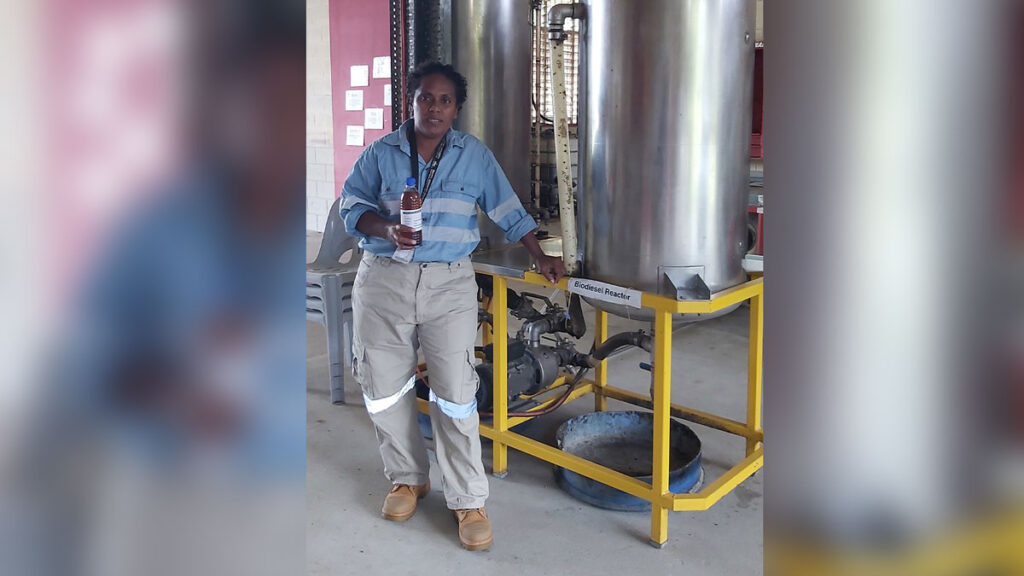Adventist keyboard warriors articulate increasingly polarised positions on climate change.
“The climate has always been changing,” says one contingent. “Who are we to think we can change God’s creation through carbon taxes? Angry leftists are part of a conspiracy for coercive government control, which will take away our religious freedom just as the Bible has predicted.”
Those on the other side see climate change as the number-one global issue requiring a significant response from all of society. “This is a moral issue,” they say, “grounded in equality for future generations, justice for the oppressed and biblical stewardship of Creation.”
I’m going to suggest a resolution that embraces some of the thinking and values of each side.
I am quite familiar with the various claims and counter-arguments in the field of climate science. I have read widely on the topic, completed a PhD in a related field (in water engineering) and currently work in public utility strategy driven by energy and climate constraints.
There is a well-established scientific consensus that human-caused greenhouse gas emissions have been the major contributor to a one degree Celsius rise in global surface temperatures since pre-industrial times. The planet is on track to warm further, increasing risks in a number of areas and affecting human wellbeing.
It is well-documented how this reality has been cleverly obfuscated by industry lobby groups with vested interests. And, on the other side, there are those who would like to exploit public consciousness regarding environmental concerns to increase their power. Understandably the issues have become confused in the minds of many conservatives (including Christians) who value personal freedoms over government control.
And this is where things legitimately get controversial: the debate over what should be done about climate change.
There’s a spectrum of views between doing nothing and totally changing everything. Those who wish to do nothing tend to question the science, while those who wish to change everything may exaggerate the science. Thus an otherwise mature scientific understanding has become polarised, politicised and confused in politics, media and social media.
I see a lot of Adventists falling for the pseudo-science claims of right-wing “freedom” advocates. I guess this is because right-wing values regarding personal freedom seem to align with our eschatological worldview. We too are wary of government-imposed restrictions on freedom. Not because we don’t care about the environment, but because we value religious freedom.
But here’s the thing: our biblical worldview doesn’t require that global warming is either a hoax or true. The earth “waxing old like a garment” and humans destroying the earth are biblical themes consistent with human-caused global warming.
There are minor branches of climate science that explore paleoclimate (distant past) records through an evolutionary lens. As Bible-believers we need not embrace evolutionary timescales. But modern-day observations of a warming planet and future projections of further warming are based on direct observations and the laws of physics, standing independent of evolutionary assumptions.
Most keyboard warriors do not understand atmospheric physics well enough to be able to articulate how carbon emissions influence climate. They accept science-sounding conclusions that resonate with their pre-existing ideology and reject those that don’t align. Most of us don’t actually know what carbon dioxide does to infra-red radiation. (Incidentally, greenhouse gases contribute to a finely tuned habitable planet—evidence for Intelligent Design.)
Those who value personal freedoms tend to gravitate toward arguments that downplay the role of carbon in attenuating climate. Those who value natural ecology tend to resonate with arguments that emphasise the role of carbon in modulating climate.
In the absence of inspired counsel to guide our understanding of atmospheric physics, and in the absence of rigorous scientific understanding amongst most of us, I’m going to suggest a pragmatic epistemology for deciding what to think and say about climate science.
If we push right-wing conspiracy theories on global warming being a hoax we’ll lose credibility with progressives. Pragmatically, this is risky for us as Adventists, at a time when the whole world needs the everlasting gospel—the most sustainable answer to environmental problems. [pullquote]
The time is coming, and now is, when climate and weather disasters get nastier, and the world points the finger at anthropogenic (human caused) global warming being a significant factor. Those who voice uncertainty and doubt regarding the science are blamed for delaying action. Do we want our ability to speak hope and wisdom into this messy and hopeless situation to be clouded by the memory of us having spoken against the scientific understanding of anthropogenic global warming?
We don’t gain anything by proclaiming scepticism regarding the science. Fossil fuel interests may thank us, but is that worth the effort? We don’t lose anything by being silent if we aren’t convinced about the science. But it’s a lose-lose scenario to voice worn-out and oft-debunked sceptical talking points.
Sure, sound a warning against centralised government control; against the intertwining of religion and politics. But please reconsider the sanity of speaking against the science. Pushing the right-wing view on climate change being a hoax is shooting ourselves in the foot, even in the very small chance that this discourse has some credibility.
But before we decide, on the other hand, to make global warming the big moral issue for our times, it would be good to put the issue in context.
We’ve been blessed with several decades of relative peace since the two world wars. Most of the nearly eight billion people alive today have not experienced the reality of multilateral armed conflict upending global stability. Bible-believing Adventists are aware that this time of peace and safety is not going to last for long. There will soon be much bigger issues to be concerned about than global warming.
There are multiple major global problems: financial crises, social unrest, climate change, resource scarcity, pollution, armed conflict, religious oppression, nuclear threats, natural disasters, disease . . . The Bible gives forewarning about problems such as these getting worse just before the return of Jesus.
This does not mean that we should not care about environmental issues, including climate change. We should, and do care. However, the solutions need to be broader and deeper than government policy to control carbon emissions.
The single biggest threat to civilisation’s sustainability is sin, which inevitably brings death. Adventists have the answer to that: Jesus. He came to pardon us and is coming back to take us to a perfectly sustainable future. Let’s present Jesus as the ultimate solution to the very real problems this world faces; but also let’s not voice half-baked scepticism regarding the science of something we neither fully understand nor have any reasonable basis to reject.
Dr Daniel Livingston attends Warners Bay Adventist Church (NSW) with his wife and two young children. He has a PhD in environmental engineering and is currently working across water, energy, climate and sustainability.






